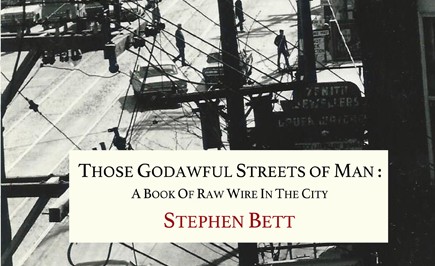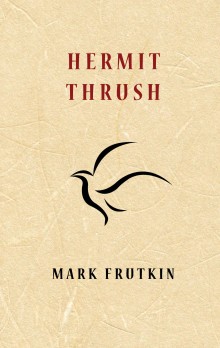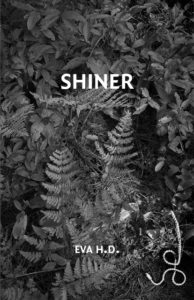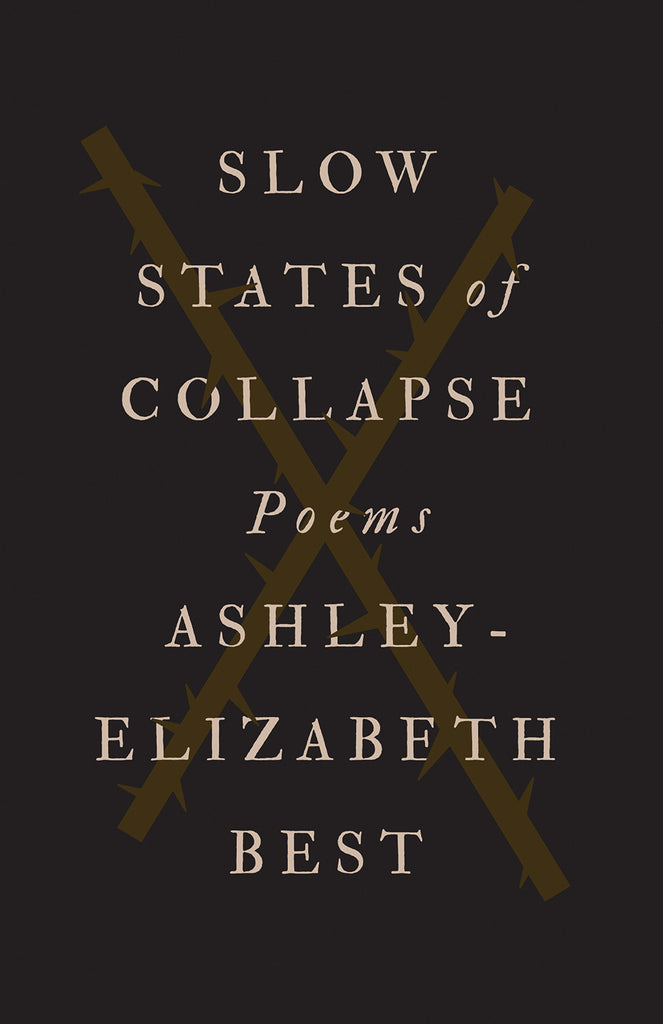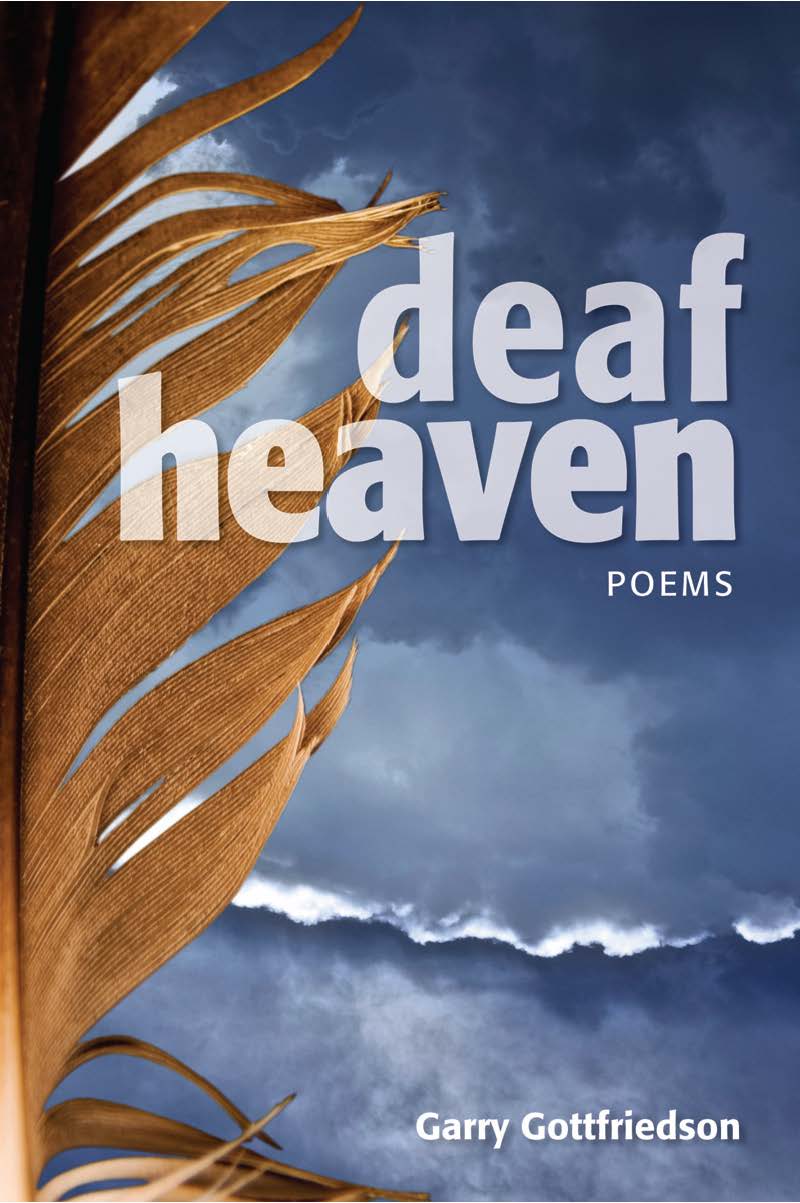Today's book of poetry:
Dawn Night Fall. Gordon Grigsby. Evening Street Press. Dublin, Ohio. 2012.
![Dawn Night Fall, by Gordon Grigsby]()
![]()
He has published poems in Prairie Schooner, West Branch, The Louisville Review, West Coast Review, The Mickle Street Review, Great River Review, Southern Poetry Review, Berkeley Poets Cooperative, Stonecloud, The Ohio Journal, and other magazines; a few translations (Rilke, Borges, Trakl) in Cornfield Review and The Ohio Journa; and critical prose in Antioch Review, Per Se, South Atlantic Quarterly, and other journals. His poems have appeared in several anthologies, including AndWhat Rough Beast, Poems at the End of the Century; Poetry Ohio; and Fresh Wster.
He has published three books: Tornado Watch, Mid-Ohio Elegies, and Dawn Night Fall ; one chapbook in the Greatest Hits Series; and Sacramento, presented to a class of freshman in 1995. Tornado Watch won a Dasher Poetry Prize in Ohio.
BLURBS
In lines that are taut, lean and lucid, Gordon Grigsby’s poems embody the substrate and the epic story of the world from which we came and in which we now struggle to survive. This is a necessary, indeed an essential book for our time.
eveningstreetpress.com
484
Dawn Night Fall. Gordon Grigsby. Evening Street Press. Dublin, Ohio. 2012.

Gordon Grigsby certainly does know how to pull on those old heart strings. Dawn Night Fall takes an uncanny swat at your emotional thermostat, slowly and carefully brings things to a boil.
Grigsby is all old school about laying ground work, setting the stage, and we appreciate that sort of thing here at Today's book of poetry. The pace is never rushed, these narratives don't let it all out on the backstretch but save something for the finish.
After Winesburg
When the last bar closes
and the last pickup heads out of town,
small towns waken
to the drone of the Interstate
like a far-off flight
of World War Two bombers
endlessly passing.
Old-timers remember the quiet
of 1950. Now
they've sold their farms to companies
with names like covers for the CIA--Lucent,
Patriot Bank, Homes Incorporated. The young
have gone away, leaving
small fairground bleachers peeling,
a car on blocks in the front yard.
Now and then, at the all-night station
out by the highway, silver island
of mercury lamps,
the young husband, a farmer
at his second job, looks up
from the office's small TV
and gets shot in the head
for a dozen ten-dollar bills.
The widow stands at the bedroom window
of their second-floor
small apartment, looking
at the empty street. Her heart's so dark
she thinks there's something
wrong with her.
Flies from the giant
egg farm outside town
buzz against the glass. Next week
she'll leave the restaurant
and go to the city. She lies down.
Her mind quivers with the window till dawn.
...
Sometimes it's just a feeling you get when reading a book, Dawn Night Fall has somehow, without permission, ingratiated itself into my movie, these poems now feel familiar. The best poems can do that, transport you past witnessing and reading and into experiencing.
Grigsby covers some sad ground in Dawn Night Fall and we follow along knowing that we are creating new memory. These poems hum with a steady pulse, a confident certainty that they know where they are headed.
One of Your Pictures
It was around when soldiers closed the campus,
and a few years before and after--
your wild time, trying to escape
the heavy-drinking minister
who was your father, not beatings but
sweetness, helplessness, shame,
escape loving him too much, being caught
in that sad life for life. So our brief
affection and escape in your quiet second-floor
back room
a few blocks from the tear gas.
But a few years later, long after
that fumbling then perfect ecstasy
in the car beside the road to Colter's farm,
when you'd gone away far from home and him,
he won -- all turned inward, full of guilt,
church-obsessed, tightly married, anxious
and afraid, asking me
in a single late letter to forget you
and burn any pictures.
You were guilty
of nothing but need and mistakes, the one
I was close to and needed in my turn,
body and mind. I can't forget you
until death makes us forget
everything. Can't get rid of
that small old carved brown vanity
with the three fixed mirrors
you gave me when you left,
where one of your pictures could see yourself
beautifully alive. I hope you're mostly happy
out there far away
in this one life that everyone secretly knows
is all we get.
...
This morning's read at the Today's book of poetry offices was a classic. Some of these poems paint pretty broad pictures, unroll, unspool, unrelenting as they gallop over time and heart-space, Grigsby gave our readers lots to play with.
Dawn Night Fall is an ode to common sense, these poems track as straight as a ruler, these poems suggest that Grigsby is a reasonable man. Reasonable poets are like flying fish, they exist, but you don't see them often.
Work, Love, Salt
Diner empty, one or two workmen
bent at the counter,
the waitresses stand --
how often I've seen them --
at the end of each table
refilling the salt. How many
have sweated, broken their hands,
ached in their beds
to give us each day a thimbleful
of what keeps the blood
tasting like the sea. That sea
we can't breathe
any more, the infinite
washing constantly through us,
but must take in scattered grains of light
that melt on the tongue -- moments
of the flavor
we used to lick as we cried
from the corners of our mouths
and find now on breasts
and thighs -- origins, separations,
griefs. Three years, like kids
surprised at the pain,
and we're bound tighter
than when we were married. Eat
bread and salt and speak the truth:
It's darkness we pour
into our lives as into a wound
in creation's side.
...
The poetry of Gordon Grigsby is bejewelled with moments of emotional honesty, the hard edge that runs between what the heart wants and the head knows.
Today's book of poetry liked it a lot.

Gordon Grigsby
ABOUT THE AUTHOR
GORDON GRIGSBY was born in Washington, D.C., and grew up near Philadelphia. After high school, he went to the Navy, Gettysburg College, Penn State University, the Army, and the University of Wisconsin, Madison. Since Wisconsin he has lived in the Midwest and has taught at The Ohio State University. He lives now in Mt. Air, north of Columbus. He has taught in Iran and Malaysia and has traveled widely.He has published poems in Prairie Schooner, West Branch, The Louisville Review, West Coast Review, The Mickle Street Review, Great River Review, Southern Poetry Review, Berkeley Poets Cooperative, Stonecloud, The Ohio Journal, and other magazines; a few translations (Rilke, Borges, Trakl) in Cornfield Review and The Ohio Journa; and critical prose in Antioch Review, Per Se, South Atlantic Quarterly, and other journals. His poems have appeared in several anthologies, including AndWhat Rough Beast, Poems at the End of the Century; Poetry Ohio; and Fresh Wster.
He has published three books: Tornado Watch, Mid-Ohio Elegies, and Dawn Night Fall ; one chapbook in the Greatest Hits Series; and Sacramento, presented to a class of freshman in 1995. Tornado Watch won a Dasher Poetry Prize in Ohio.
BLURBS
In lines that are taut, lean and lucid, Gordon Grigsby’s poems embody the substrate and the epic story of the world from which we came and in which we now struggle to survive. This is a necessary, indeed an essential book for our time.
— Ernest Lockridge’s most recent book: Skeleton Key to the Suicide of My Father Ross Lockridge, Jr, author of Raintree County
In poem after piercing poem—“The Light Here,” “An Ocean Sound,” “Nancy’s Sandwich Shop Heightened Consciousness”—Grigsby weaves our intense human moments of love, sorrow, or joy into the beauty and grandeur of our indifferent earth. The art of his vision is unique and invaluable. — Julian Markels, author of The Marxian Imagination
Like James Wright before him, Gordon Grigsby is an essential Mid-Western poet, a hard-scrabbled farmer of words, a steel-worker tending to the furnaces of an imagination that flares in darkness: "the praised madness that trembles the air." The geography of Ohio, the names of its vanished Indian tribes, the smell of a dead child and the poisoned rain, are here given their full measure of terrible beauty.
In poem after piercing poem—“The Light Here,” “An Ocean Sound,” “Nancy’s Sandwich Shop Heightened Consciousness”—Grigsby weaves our intense human moments of love, sorrow, or joy into the beauty and grandeur of our indifferent earth. The art of his vision is unique and invaluable. — Julian Markels, author of The Marxian Imagination
Like James Wright before him, Gordon Grigsby is an essential Mid-Western poet, a hard-scrabbled farmer of words, a steel-worker tending to the furnaces of an imagination that flares in darkness: "the praised madness that trembles the air." The geography of Ohio, the names of its vanished Indian tribes, the smell of a dead child and the poisoned rain, are here given their full measure of terrible beauty.
— Michael Salcman, author of The Clock Made of Confetti and The Enemy of Good Is Better
Dawn Night Fall explores the interplay between sorrow and hope, tragic realities and the mind’s freedom, through startlingly original images and ideas. As in Walden, Grigsby uses his house on a small river in Mt. Air, Ohio as a way into the natural world, ancient and personal history, world travels, and complex combinations of pain and luminosity: ashes of a premature baby, woman and children waiting in corrugated tin shanties, a loved father lonely in Sun City, the glow of needles on a forest floor, streetlamp glint on everyone’s hair. Readers are richly rewarded for his extraordinary vision.
Dawn Night Fall explores the interplay between sorrow and hope, tragic realities and the mind’s freedom, through startlingly original images and ideas. As in Walden, Grigsby uses his house on a small river in Mt. Air, Ohio as a way into the natural world, ancient and personal history, world travels, and complex combinations of pain and luminosity: ashes of a premature baby, woman and children waiting in corrugated tin shanties, a loved father lonely in Sun City, the glow of needles on a forest floor, streetlamp glint on everyone’s hair. Readers are richly rewarded for his extraordinary vision.
— Jan Schmittauer, Associate Professor, Ohio University
eveningstreetpress.com
484
DISCLAIMERS
Poems cited here are assumed to be under copyright by the poet and/or publisher. They are shown here for publicity and review purposes. For any other kind of re-use of these poems, please contact the listed publishers for permission.
We here at TBOP are technically deficient and rely on our bashful Milo to fix everything. We received notice from Google that we were using "cookies"
and that for our readers in Europe there had to be notification of the use of those "cookies. Please be aware that TBOP may employ the use of some "cookies" (whatever they are) and you should take that into consideration.












